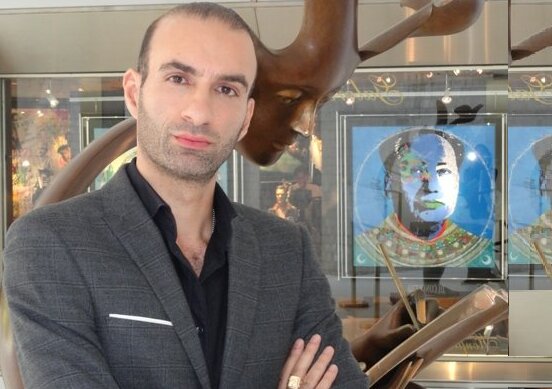TEHRAN(Bazaar) - Professor Arshin Adib-Moghaddam, Chair of the Center for Iranian Studies at the London Middle East Institute believes given the self-improving nature of the technology which is incomparable to anything we have encountered before, AI technology could become an existential threat to humanity, i.e. to our species as a whole.
He adds “AI is the only advance in our global history that may do away with human supervision and control.”
Here is the full text of the Bazaar's interview with Professor Arshin Adib-Moghaddam.
Q: In the book “Is Artificial Intelligence Racist? The Ethics of AI and the Future of Humanity” you have addressed the issue of racism and sexism. What is the importance of these issues in the digital era?
A: The book demonstrates how AI technology compounds sexism and racism within society, if AI remains unchecked and unregulated. It traces the historical roots of our polluted data, especially in European and North American societies, and connects some of the problems to solutions for the future with particular reference to global institutions and civil society activism.
Q: Your book somehow raises the issue of ethics in technology and concerns about how to pay attention to ethics in Artificial Intelligence. In your opinion, in what areas may AI ignore ethics? You believe that many aspects of human life in the past have been controlled by AI. You seem to be worried that humans will enter a world where AI has wider control over human life. In your opinion, whose duty is to raise awareness in this field?
A: Every single aspect of contemporary life in highly technologized societies is already affected, and increasingly determined by AI technology. This includes healthcare, everyday banking, education etc. The book shows that the algorithms governing those spheres of our life are prone to the mistakes of the past – a sorry and painful history of discrimination and systematic suppression of minorities is unfortunately part of that. Therefore, the book ends with a set of recommendations for everyday life, things we can do to shield our privacy.
There are also several sections on governance options, on the local, national and international level which may help to start a global dialogue about codifying a consensus about the code of conduct for AI-based applications. In the end, it is us, the citizens who need to raise awareness and to engage our governments in order to ensure that AI-based technology does not threaten our human security, and rather fosters it. This is possible, and the book demonstrates why it is necessary and possible to do so.
Q: What are the consequences of unchecked AI development on international security and human rights?
A: AI-based technology has already shown that it has the potential to disrupt the political order. The election of right-wing governments, including Donald Trump, Brexit and other major developments were carried by some of these algorithms.
Moreover, given the self-improving nature of the technology which is incomparable to anything we have encountered before, AI technology could become an existential threat to humanity, i.e. to our species as a whole, as AI is the only advance in our global history that may do away with human supervision and control. Again, the time is now to prevent this and to set an agenda that minimises the nefarious abuse of AI as a means to carry various form of extremism and entrench systems of suppression.
Q: Considering the attractiveness that AI has for governments, how much do you think companies related to AI will pay attention to ethics and not just consider the interests of governments? Because you believe that people like Elon Musk, Mark Zuckerberg, and Bill Gates have helped various forms of extremism.
A: I am not arguing that Musk, Zuckerberg and Gates are personally responsible and I don’t at all adhere to the comical, yet prevalent view on social media, that they are a part of a global conspiracy to rule the world. However, the book does show that the ideology that their companies adhere to has an imperial impulse, i.e. it is all about expansion. It is just that the type of expansion is different to previous forms, as it does not target physical territory, but the digital/virtual world.
So, their logic to capture us in that digital/virtual world through the internet, social media or new inventions such as the virtual “meta-world” makes sense, as it is here were we will be turned into compliant consumers, governed and surveilled in accordance with the profit margins that these companies try to maximise.
This type of imperialism is not located in one territory or locus, it is not US American or Asian or anything, as the citizens in those areas themselves are the primary targets of such regimes of imperial capitalism.
In fact, the demise of democracy in the United States, and the concomitant loss of stability in the country that it has brought about, can be directly linked to that imperial power of the “tech-giants” and the galvanising effect on various forms of extremism that it accommodated.
Again, the book makes these global connections, and shows how we can navigate the threats and opportunities, in order to safeguard our loved-ones and the future of society as we know it.















نظر شما